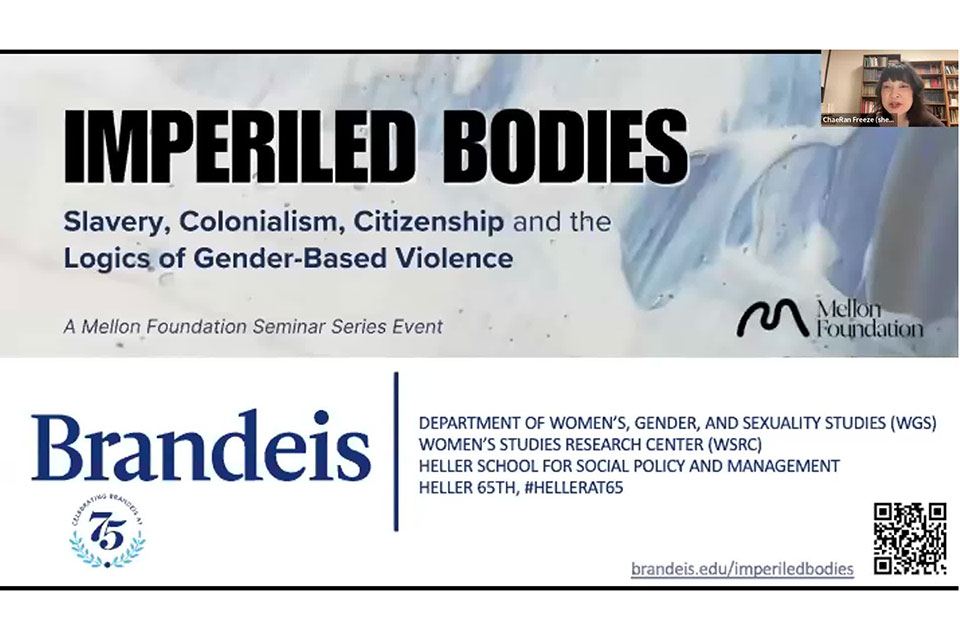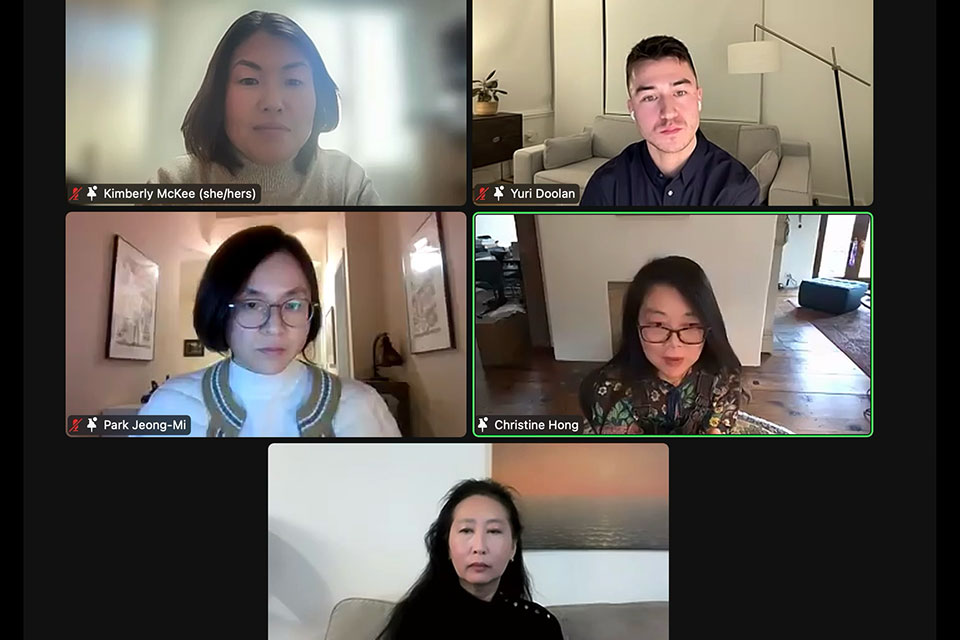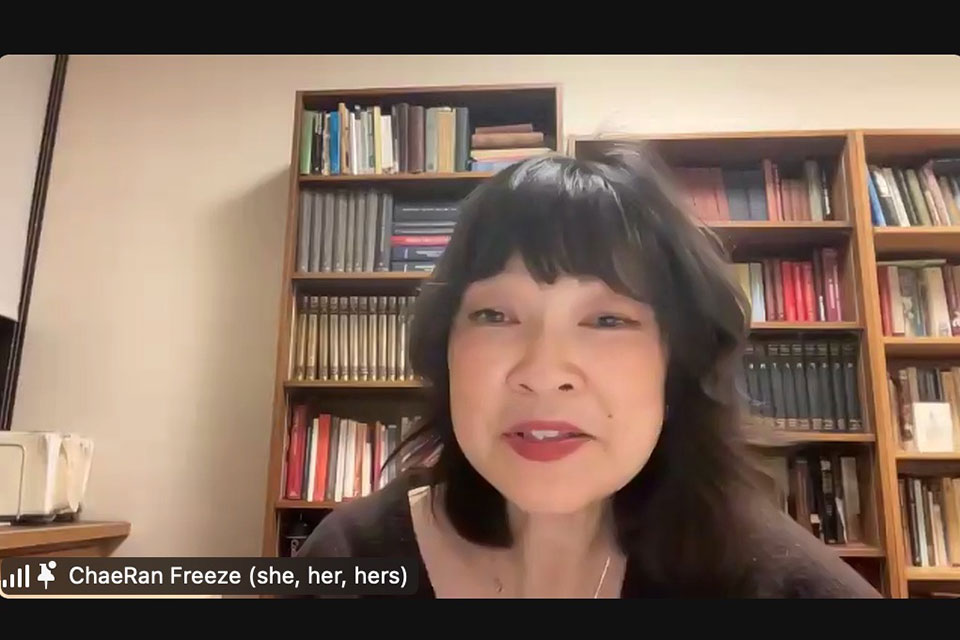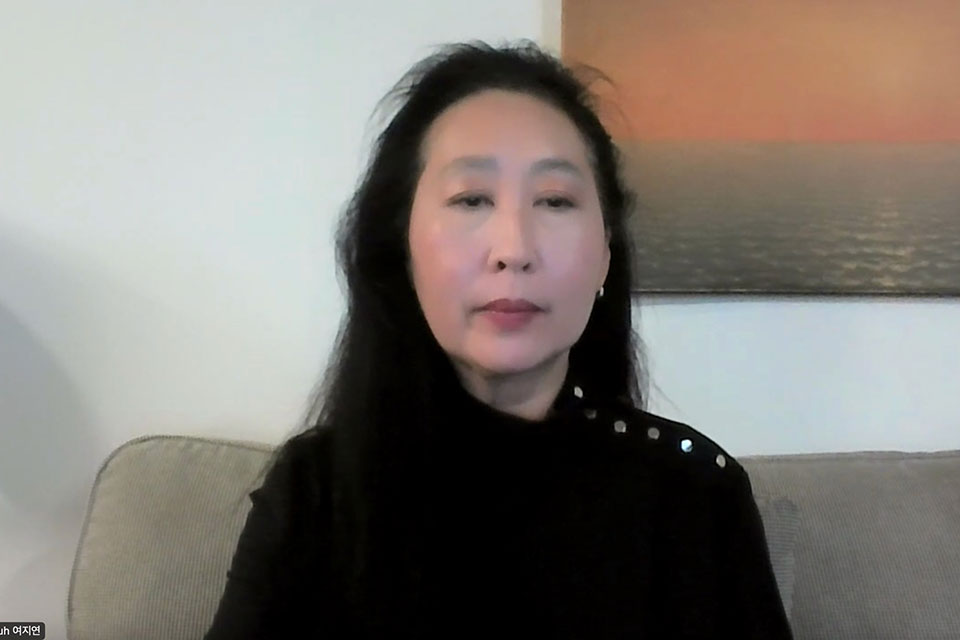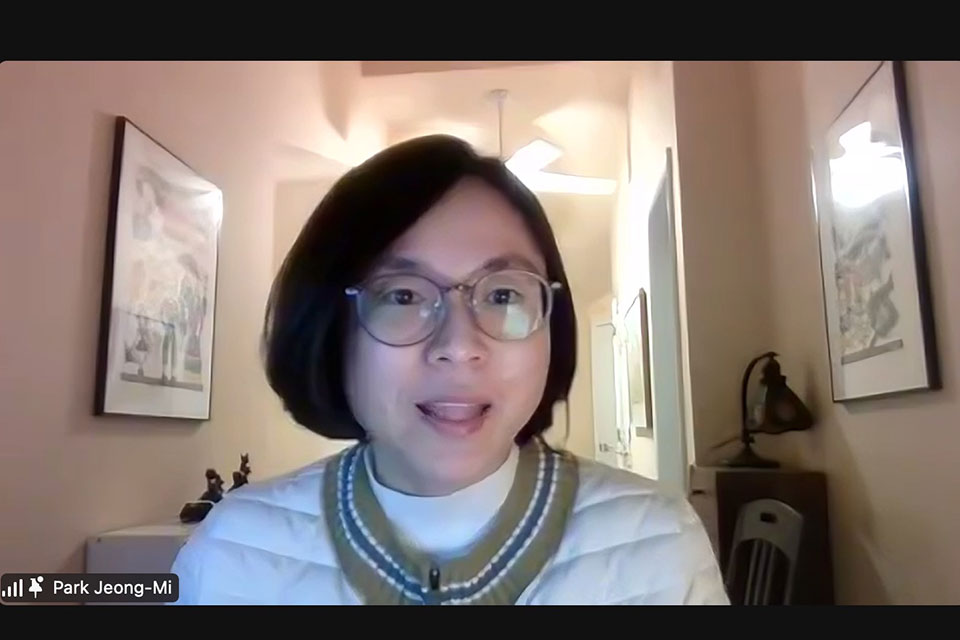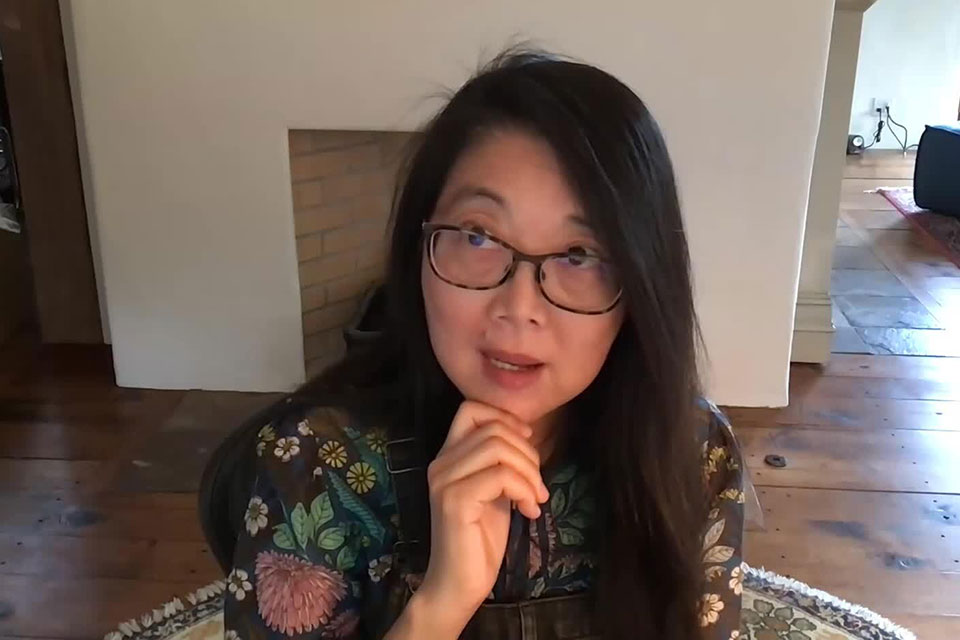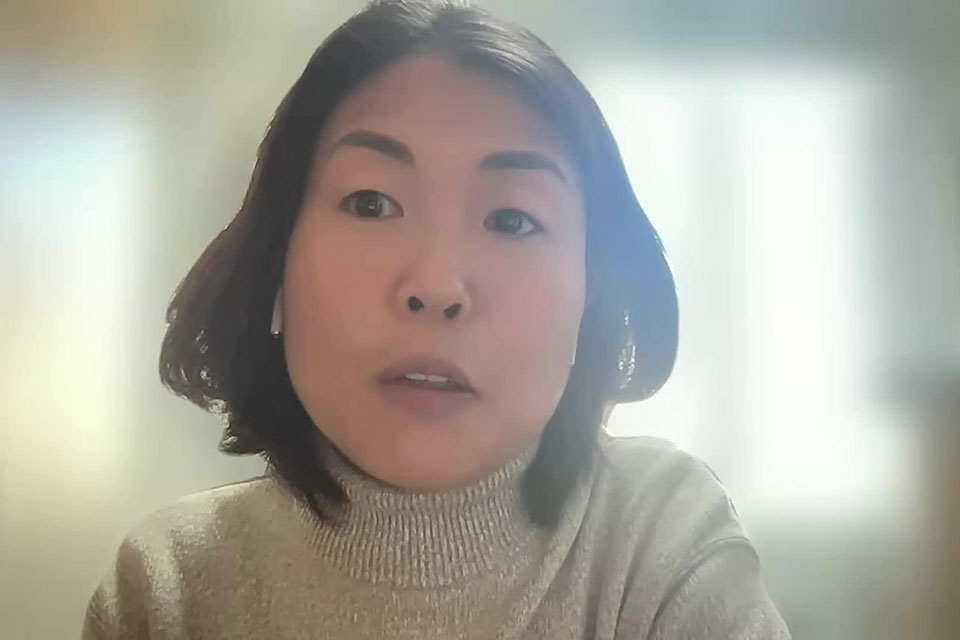Interrogating Racialized, Gendered, and Sexualized Violence in the Korean Diaspora
On Jan. 23, 2024, the Mellon Sawyer Seminar hosted the panel “From Comfort Woman to Comfort Child: Genealogies of Gendered and Sexualized Violence in the Korean Diaspora.” Organized by Yuri Doolan (Brandeis University) and moderated by Ji-Yeon Yuh (Northwestern University), the session examined how racialized and sexualized Korean women and children have negotiated linked Japanese and U.S. imperial violences, particularly since World War II. Panelists traced the labor and logics behind the term “comfort woman,” which has variously referred to women coerced into providing sexual labor to Japan’s military during World War II and to women coerced into sexually serving U.S. military personnel in Cold War era camptowns in South Korea.
Focusing on the figure of the Korean War mascot, Christine Hong (UC Santa Cruz) began by interrogating how indigenous women and children were conscripted into reproductive and affective labor ranging from housekeeping to producing a feeling of “home away from home” for non-native troops during the Korean War. Critical of revisionist U.S. accounts that position the Korean War as a milestone for African American racial integration, Hong’s analysis exposed multiple violences—indeed, multiple wars—waged in the name of the U.S. war machine. Jeong-Mi Park (Chungbuk University) presented research from her forthcoming book "The State’s Sexuality: Prostitution and Postcolonial Nation Building in South Korea" (University of California Press, August 2024). Documenting the uneven usage of the term “comfort women,” Jeong-Mi Park demonstrated how the nation elided the continuities between the experiences of Kim Hak Sun, who survived Japanese military sexual enslavement, and Yun Kŭm-I, who was murdered by a U.S. serviceman—a stark example of what she terms the “overwriting of the national memory.” Yuri Doolan too underscored continuities between Japanese and U.S. imperialist wieldings of “comfort” before considering their implications for the first generation of Korean adoptees in the United States. Drawing on research from his forthcoming book "The First Amerasians: Mixed Race Koreans from Camptowns to America" (Oxford University Press, 2024), he showed how it was the sons and daughters of U.S. military “comfort women” who would take on the role of what Jane Jeong Trenka terms the “comfort child,” conscripted, as part of a “clear genealogy of violence,” into easing white American guilt about the Korean War. Finally, Kimberly McKee (Grand Valley State University) presented research from her recent book "Adoption Fantasies: The Fetishization of Asian Adoptees from Girlhood to Womanhood" (2023). She demonstrated that Korean adoptee girls are positioned at “a nexus of objectification,” negotiating Orientalist fantasies about Korea and about Asian American women. Exposing the violent intimacies that permeate both U.S. popular culture and adoptive families themselves, McKee emphasized the importance of centering the perspectives of adoptees in disrupting racialized and sexualized harassment.
Attending to the experiences of multiple generations of women and children in the Korean diaspora, panelists interrogated the role of racialized, gendered, and sexualized labor in constructing national and international fictions and relations. Together they exposed layers of imperial violence undergirding fantasies of “comfort.”
Posted by Carmel Ohman, Jan. 25, 2024
This event was part of the year-long Mellon Sawyer Seminar, “Imperiled Bodies: Slavery, Colonialism, Citizenship and the Logics of Gender-Based Violence” led by PI Anita Hill, co-PI Harleen Singh, and ChaeRan Freeze at Brandeis University. Brandeis University sponsors and resources include the Heller School for Social Policy and Management, the Department of Women’s, Gender, and Sexuality Studies, the Women’s Studies Research Center, the Mandel Center for the Humanities, the Hadassah Brandeis Institute, the Feminist Sexual Ethics Project, the Rose Art Museum, the Kniznick Art Gallery, the Gender and Sexuality Center, and the Prevention, Advocacy, and Resource Center. This seminar is among the signature events of the Heller 65th Anniversary year, Celebrating Knowledge Advancing Social Justice #Hellerat65.
